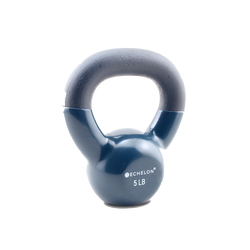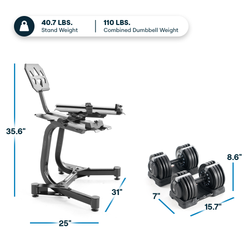Echelon's Guide to a Healthy Relationship with Food

As members of the Echelon community, we understand the importance of not only physical fitness but also maintaining a healthy relationship with food. Developing a positive mindset towards food can greatly impact our overall well-being and performance. In this blog post, we will explore how to master your mindset when it comes to food and provide practical strategies for building a healthier relationship with what you eat.
Understanding Your Current Relationship with Food
Diving deeper into the nuances of our eating habits requires a candid self-assessment. This exploration is not about casting judgment on ourselves but rather understanding the roots of our food-related behaviors. Many of us might not realize the intricate ways in which food is intertwined with our emotions and daily life. Perhaps in times of stress, a sweet treat becomes a source of comfort, or maybe, in moments of celebration, we lean heavily into indulgent meals. Identifying these patterns is crucial, as it unveils the emotional ties we have with food, which can often lead us away from our health and fitness objectives.
Start by asking yourself a few reflective questions:
- What emotions trigger you to eat when you're not hungry?
- Do you eat differently alone than you do in social situations?
- How does your mood affect your food choices?
These inquiries can shed light on your current food mindset, revealing if your eating habits are primarily driven by hunger, emotion, or a mixture of both.
Acknowledging the role of food beyond mere sustenance allows us to see it as a component of our lives that we can control and adapt, not something that controls us. This realization is the cornerstone of cultivating a mindful and balanced approach to eating. By embracing this self-awareness, we lay the groundwork for transforming our relationship with food into one that harmonizes with our health and well-being goals.
The Power of Mindset in Transforming Your Eating Habits
The journey to mastering your relationship with food begins in the mind. The way we think about food deeply influences our eating habits and, by extension, our overall health and fitness. Adopting a growth-oriented mindset towards eating can open the door to positive changes. Instead of being trapped in a cycle of guilt and restriction, consider each meal as an opportunity to nourish your body and fuel your fitness goals.
Mindset is about more than just positive thinking; it's about creating a foundation of beliefs that empower you to make healthier choices. Viewing food through the lens of nourishment and enjoyment rather than a strict dichotomy of good and bad can significantly alter your eating habits for the better. This approach encourages a flexible relationship with food, where making nutritious choices becomes a natural inclination rather than a forced obligation.
To leverage the power of mindset, start by acknowledging the victories, no matter how small. Celebrated a workout with a healthy meal? That's a win. Chose water over soda? Another step in the right direction. These successes build upon each other, reinforcing the belief that you can make choices that support your health and fitness aspirations.
Furthermore, understanding that setbacks are part of the journey is crucial. A single indulgence doesn't define your relationship with food; it's the overall pattern of eating that matters. Embrace the learning opportunities that come from less-than-ideal choices and use them to strengthen your resolve. This resilience, rooted in a positive and flexible mindset, is key to transforming your eating habits and achieving lasting change.
Practical Strategies for Developing a Healthy Relationship with Food
Embarking on the journey to a healthier relationship with food involves integrating tangible, day-to-day practices that support your goals. An effective strategy is meal planning and prepping at the start of the week, which not only saves time but also ensures that you have healthy, appealing options at your fingertips, reducing the temptation to opt for less nutritious choices. Engaging in mindful eating can profoundly transform your eating experience. This means taking the time to eat without distractions, focusing on the flavors, textures, and how food makes you feel, thus fostering a deeper connection with your meals and helping to recognize true hunger cues versus emotional eating.
Diversifying your diet is another critical step; it prevents nutritional boredom and ensures you receive a wide range of nutrients. Experiment with new recipes and ingredients to keep meals exciting and nutritious. Remember, variety is the spice of life and a cornerstone of a balanced diet.
Additionally, listening to your body’s signals is crucial. It tells you when you’re hungry, full, and what foods make you feel best. By paying attention, you can tailor your eating habits to better suit your body’s needs, leading to improved energy levels and overall health.
Implementing these strategies requires patience and persistence. Start small and gradually build these practices into your daily routine. Over time, these steps will become second nature, significantly contributing to a more mindful, enjoyable, and healthful relationship with food.
The Importance of Community Support in Your Journey
Navigating the path to a healthier relationship with food becomes more manageable and enjoyable with the backing of a strong community. Within the Echelon family, we're privileged to connect with peers who share similar goals and understand the intricacies of balancing fitness with nutritional well-being. This collective environment fosters a space where we can exchange recipes, celebrate our victories, and find solace during setbacks. Engaging in discussions around meal planning, mindful eating, and the challenges of dietary changes enriches our journey, providing fresh perspectives and motivation. The encouragement received from fellow members not only uplifts our spirits but also reinforces our commitment to healthier habits. Embracing this community support plays a pivotal role in not just achieving, but sustaining, a positive transformation in our eating habits and overall lifestyle.
Reach out if you Need Help
At Echelon Fitness, we understand the crucial importance of not only maintaining a healthy body but also fostering a positive and balanced relationship with food. Recognizing eating disorders is the first step toward healing, and we want to remind our valued Echelon members that if your relationship with food is causing significant struggle, it's essential to seek support. We strongly encourage anyone who feels they may be experiencing these challenges to reach out to a registered dietitian who can provide the specialized help and guidance needed. Remember, there is help, and you're not alone on this journey. Together, as a supportive and caring community, we can navigate these challenges and help you find a healthier path forward. Please don't hesitate to make use of the resources available to you through our Echelon community.












































































